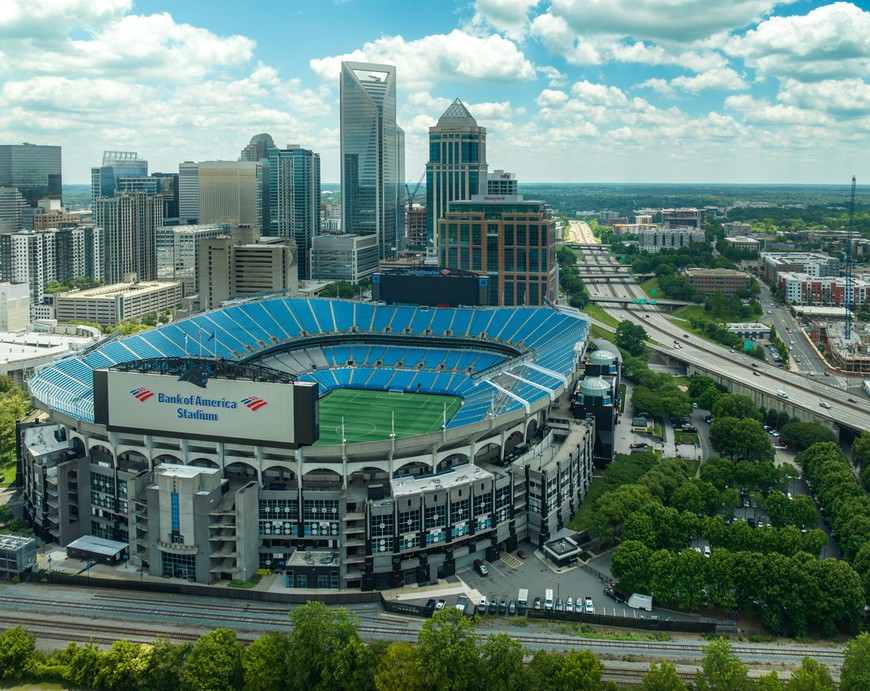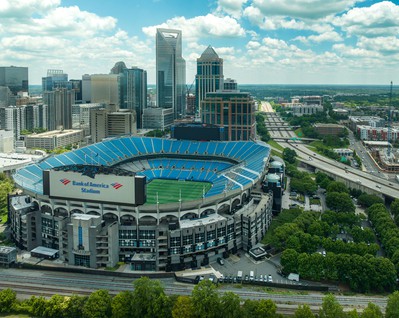

- North Carolina lawmakers may require mobile sportsbooks to partner with pro sports teams.
- The proposal surfaced in a draft version of the state budget.
- Critics argue it could create a form of crony capitalism.
- The change comes after Governor Roy Cooper signed North Carolina’s mobile sports betting legislation.
- Specific details about partnership agreements and costs remain unclear.
Lawmakers are considering a major change to how North Carolina mobile sports betting licenses will be issued before next year’s anticipated launch.
In a nutshell — instead of having operators apply to the North Carolina State Lottery Commission (NCLC) for one of 12 mobile licenses, sportsbook operators would instead be required to form a partnership with either a professional sports team, certain auto racing tracks and golf courses, or through NASCAR or the PGA.
The proposal was included in a draft version of the state budget and was first reported by WRAL-TV in Raleigh. The legislature is expected to try to pass the budget, which totals about $30 billion, later this week.
If the budget passes with the proposed change left intact, operators will have an additional hoop to jump through if they hope to launch in the Tar Heel State.
Change Derided as “Crony Capitalism at Work”
The leagues will get to control and monetize who gets a license. This would statutorily impose private business as the gate-keepers to tax and control who enters the state.
To be clear, the last-minute change is a bit of a head-turner. But it’s also not unusual for the legislature to make changes this way.
Last summer, Governor Roy Cooper signed legislation authorizing the NCLC to issue up to 12 mobile licenses. The bill Cooper signed, HB 347, also pinned the tax rate for mobile sports betting at 18%, with the market launching sometime on or after January 8 but no later than June 14.
But under a draft version of the state budget, lawmakers have directed the NCLC to “only license interactive sports wagering operators who have a written designation agreement” with either a pro sports team, the owner or operator of “a motorsports facility” or “a facility that hosts a professional golf tournament annually.”
Other potential partners for operators include NASCAR or “a sports governing body that annually within the calendar year sanctions more than one professional golf tournament,” meaning the PGA.
Lawmakers did not define what a “written designation agreement” means or stipulate how much such an agreement would cost operators. They also did not change the tax rate or the launch date. And it remains unclear if the NCLC is still limited to issuing just 12 licenses.
It’s not unusual in North Carolina for lawmakers to use the budget process to make changes to existing legislation.
Nevertheless, some are already starting to push back on the idea.
“This is crony capitalism at work,” vented Sporttrade CEO and founder Alex Kane on X, the social media platform formerly known as Twitter. He added later that North Carolina “has created a scarcity in licenses. They were designed to be direct.
“Now the leagues will get to control and monetize who gets a license. This would statutorily impose private business as the gate-keepers to tax and control who enters the state.”
Who Operators Would Be Partnering With
HB 347 provides some clues as to what entities will have a say in which operators get a license. That’s because the bill included verbiage on where a retail sportsbook could be built, which includes professional sports teams.
The potential partners for North Carolina’s mobile sports betting operators are:
- Carolina Hurricanes (NHL)
- Charlotte Hornets (NBA)
- Charlotte Panthers (NFL)
- North Carolina Courage (NWSL)
- North Carolina FC (USL1)
- Charlotte Motor Speedway
- North Wilkesboro Speedway
- Quail Hollow Club
- Sedgefield Country Club
NASCAR uses Charlotte Motor Speedway and the North Wilkesboro Speedway, while the PGA Tour uses Quail Hollow Club and Sedgefield Country Club.
Although the aforementioned list contains only nine potential partners, consider that the changes under consideration by NC lawmakers would allow NASCAR and the PGA to also be party to a written designation agreement. That would make 11 — meaning the changes would only mean one less sportsbook.

